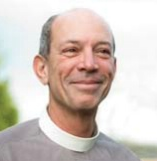I am trying to answer Jesus’ question: “What are you looking for?”
Last summer, I visited Robben Island just off the shore of Cape Town, South Africa. During the tour of the facility, a former prisoner gave a talk. As he was closing his remarks and heading out the door, a visitor asked how he felt about the election of Barak Obama as president of the United States, and how Mr. Obama’s election effected the situation of non-whites all over the globe.
Up until this point, the man’s remarks had been non-political, facts and stories about the life of a prisoner at Robben Island during the Apartheid regime. Certainly his life and the life of his comrades was harsh, unfair and dehumanizing. His tone, however, was cordial and even positive. It seemed that he understood that the treatment he received at the hands of his captors was, in a twisted way, rational given the code that they were asked to enforce. He did not blame them even though he had cause. I could tell that he was annoyed by the question. Nevertheless, he paused, turned to face us, and then he said this: “Barak Obama lives within a framework. The foreign policies of the US do not change. He lives within that framework.”
This former prisoner is an intelligent person of faith. Forced to live in isolation for years, as he and Nelson Mandela and thousands of others were, he had come to a clear understanding of what it means to live within a framework, and he wanted us to know that each person is challenged by his or her chosen framework.
Jesus was such a person. If you look deeply into his teachings, you will see his compassion and concern for those in leadership positions. He cared deeply about the poor and the disenfranchised, but he also cared about leaders whose frameworks were narrow, self-serving, strict or closed-minded.
The framework of the Jewish leadership in Jesus’ time had grown narrow. Codes and rituals dictated what people could eat and drink, whom they could associate with or marry, who was in or who was out.
Jesus came to liberate humanity from the narrow a framework. He as much as said: the kingdom of heaven is a place that has no framework but one: love—love thyself; love thy neighbor; and love God.
If you are reading this, you know that you, also, live within a framework. I happen to be a teacher in an Episcopal school. Here when students and teachers sign our annual contracts, we are dedicating ourselves to the pursuit of justice, peace and respect for every human being and the natural world. This is the stated mission of my school, and it is a good and decent framework. But we must consider that schools are institutions where frameworks and dimensions can become narrow places where students are taught to move ahead in selfish ways, competing with each other for better SAT scores, outstanding GPA, higher social status, and longer lists of community service activities.
Many schools include an outreach component because they know that giving time and money to those who are less fortunate than ourselves creates a sense of duty and purpose that builds character. This is known as service learning. Some schools include a third component, one that acknowledges the mystery of life and encourages an infinite search for who we are and why we are here. These schools talk about being transformational, but the truth is: a place cannot be transformational. Transformation cannot be sprayed on like paint, measured with standardized tests, or rewarded by a title or diploma. Transformation comes from within. It is something that happens when we decide that we want make a difference.
If experience has taught me anything, it is that the things that save us as individuals, the things that guide us as communities of hope, the things that will ultimately make this world a world of justice, peace and respect for all, are not found in a one or two dimensional framework of policies and rules. What will save us is our vision and our willingness to acknowledge our responsibility to discover who we are.
The one sure way to find out who we are is to help another person find out who they are. External frameworks cannot do it for us. I believe that finding our vocation comes from the Holy Spirit stirring within us, awakening in us a love of others and of God. The former prisoner on Robben Island knew this. Jesus knew this. Suppressed by unfair political and social systems, imprisoned by frameworks of power and prejudice, they discovered that the human spirit can never be taken away.
There is a wonderful song that we sing in chapel services from time to time. It has a line that goes: “If you follow in love, you’ll learn the mystery of, of what you were meant to do and be.”
“What are you looking for?” asks Jesus.
The answer is easy: I am looking for the meaning of my life and the direction I should take to find it. Jesus said, “For whoever would save his life will lose it, and whoever loses his life for my sake will find it.” The question is: Are we too attached to life as we know it to follow Jesus to something new? In other words, are we concerned and anxious about what we will lose or what we will find?
Saturday, February 12, 2011
Subscribe to:
Post Comments (Atom)

No comments:
Post a Comment